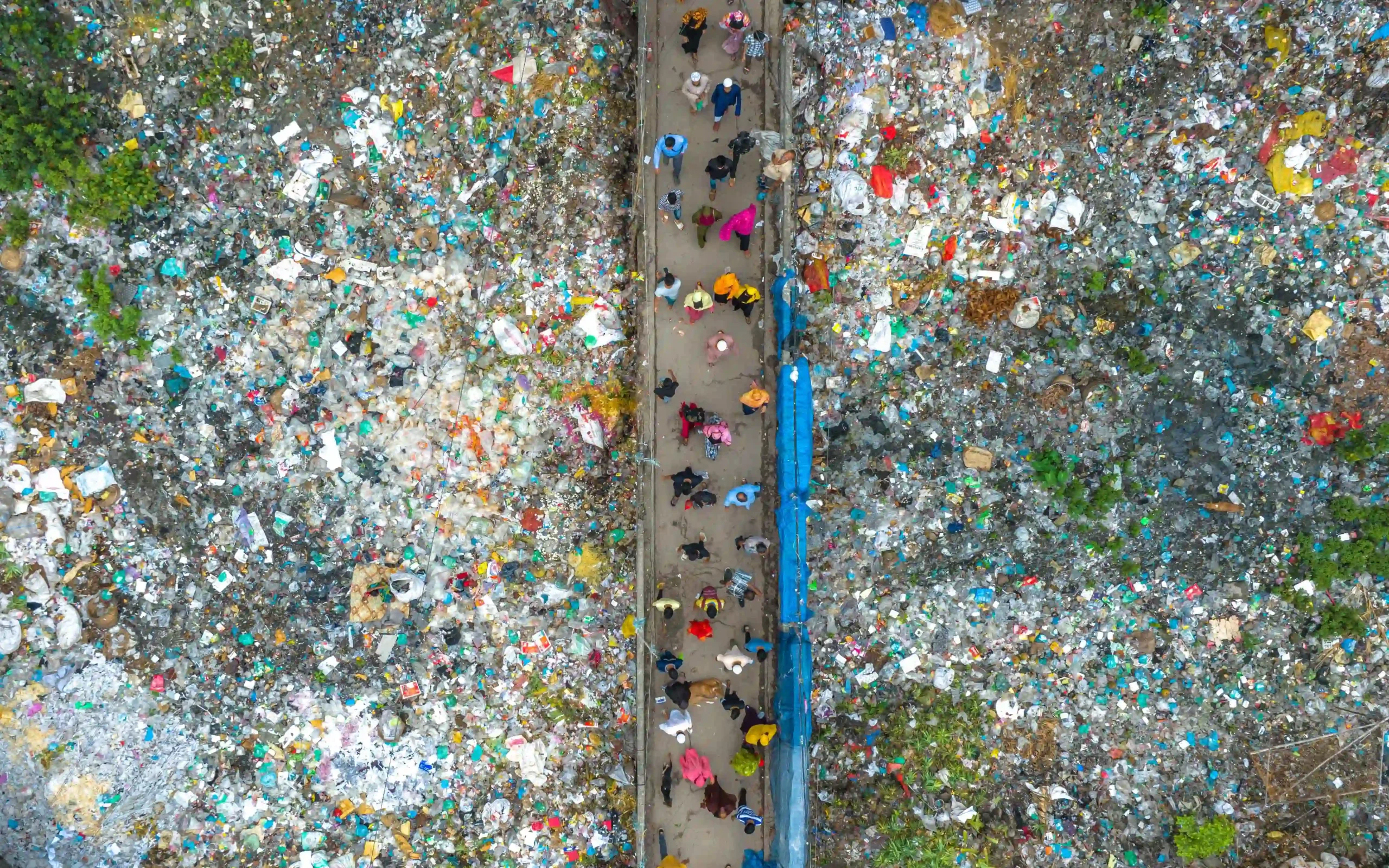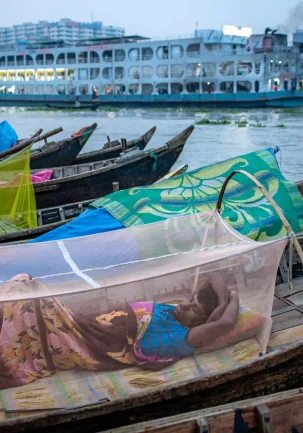Walk Through The River Of Plastics
Once celebrated as the lifeblood of Dhaka, the Buriganga River now stands as a testament to environmental degradation, poised on the verge of ecological collapse due to rampant plastic pollution. This vital waterway, historically a source of sustenance and prosperity, is now among the most polluted rivers globally, suffering from severe plastic mismanagement in Bangladesh.
Daily, millions of Dhaka’s residents navigate makeshift plastic bridges spanning the Buriganga, a stark reminder of the pollution crisis. The city of Dhaka generates approximately 4,500 tons of solid waste each day, with a significant portion released into the Buriganga. Annually, nearly one million metric tons of non-biodegradable waste end up in the river. Specifically, around 646 tons of plastic waste are collected daily from the Buriganga, accounting for 10 percent of the total waste generated in Bangladesh. Unfortunately, only 37.2 percent of this plastic waste is recycled.
A separate study highlights the scale of single-use plastic waste, revealing that 87,000 tonnes of items, such as plastic bags, bottles, cups, plates, and straws, are discarded annually in Bangladesh. Despite governmental pledges to address plastic pollution, its pervasive presence continues to endanger human and animal health.
The situation demands a comprehensive and sustainable approach to waste management, emphasizing recycling, reduction of single-use plastics, and community engagement. By adopting sustainable practices, Dhaka can work towards restoring the Buriganga River and safeguarding the health and well-being of its four million inhabitants, ensuring a cleaner, healthier environment for future generations.









